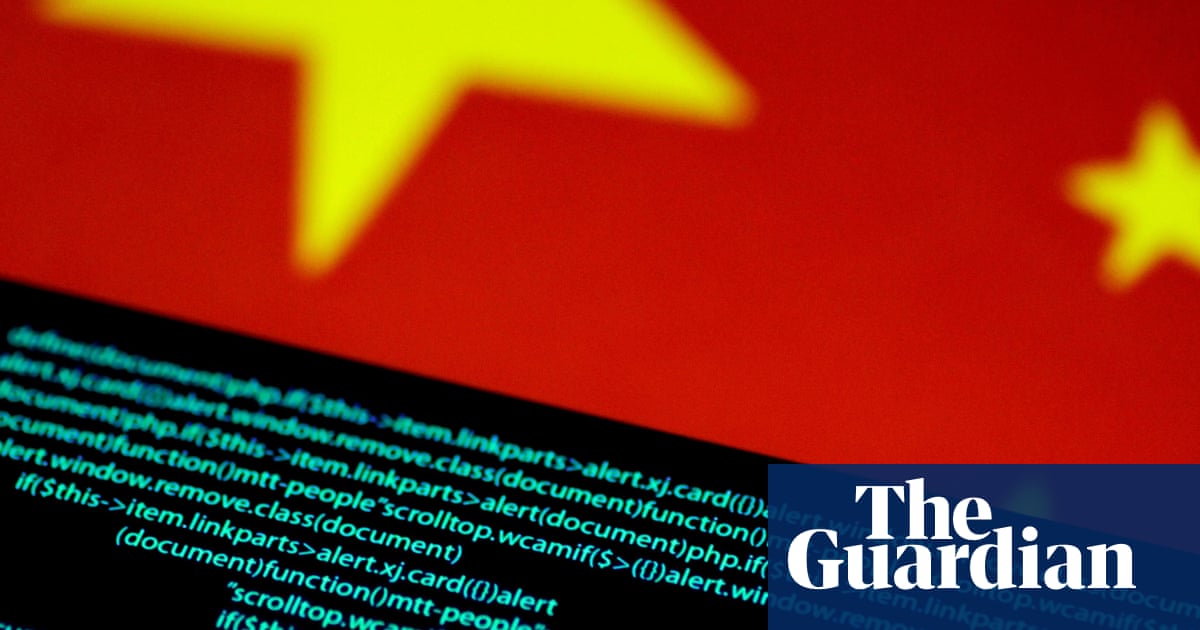The personal details of millions of voters are believed to have been accessed in an attack by China on Britain’s democratic process.
With the UK under pressure to respond, multiple reports suggested that sanctions against individuals thought to be connected with the alleged activity are under strong consideration.
A small group of politicians who are hawkish on China are said to have been called to a briefing by parliament’s director of security, Alison Giles, in relation to the activity.
They include former Conservative leader Sir Iain Duncan Smith, the former minister Tim Loughton, the crossbench peer Lord Alton and the SNP MP Stewart McDonald, the Times reported.
The four are members of the Inter-Parliamentary Alliance on China (Ipac) pressure group, which focuses on issues involving the increasingly assertive Asian power.
At an Ipac meeting on Friday, Luke de Pulford, its executive director, said: “About a year ago the Belgian and French foreign ministries publicly confirmed [Chinese state] sponsored cyber-attacks against our members.



This is the best summary I could come up with:
The UK could impose sanctions on individuals believed to be involved in these acts of state-backed interference, one of which was a separate attack on the Electoral Commission in which Beijing accessed the personal details of about 40 million voters.
With the UK under pressure to respond, multiple reports suggested that sanctions against individuals thought to be connected with the alleged activity are under strong consideration.
They include former Conservative leader Sir Iain Duncan Smith, the former minister Tim Loughton, the crossbench peer Lord Alton and the SNP MP Stewart McDonald, the Times reported.
At an Ipac meeting on Friday, Luke de Pulford, its executive director, said: “About a year ago the Belgian and French foreign ministries publicly confirmed [Chinese state] sponsored cyber-attacks against our members.
The legislation, designed to ensure the UK’s investigatory powers framework remains adequate in the face of evolving threats, includes measures to make it easier for agencies to examine and retain bulk datasets.
If passed, it will update elements of the Investigatory Powers Act 2016 found to require a refresh by a statutory review published by the Home Office in February 2023.
The original article contains 417 words, the summary contains 187 words. Saved 55%. I’m a bot and I’m open source!